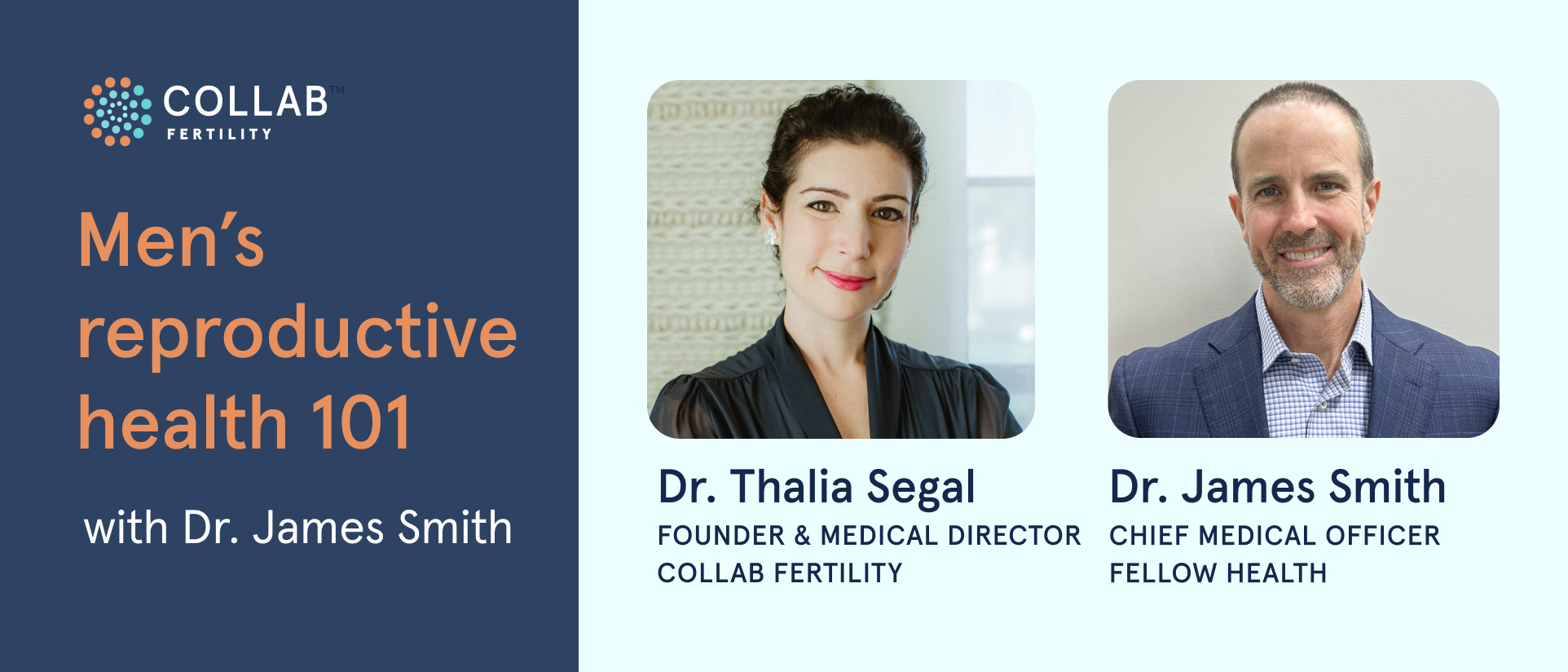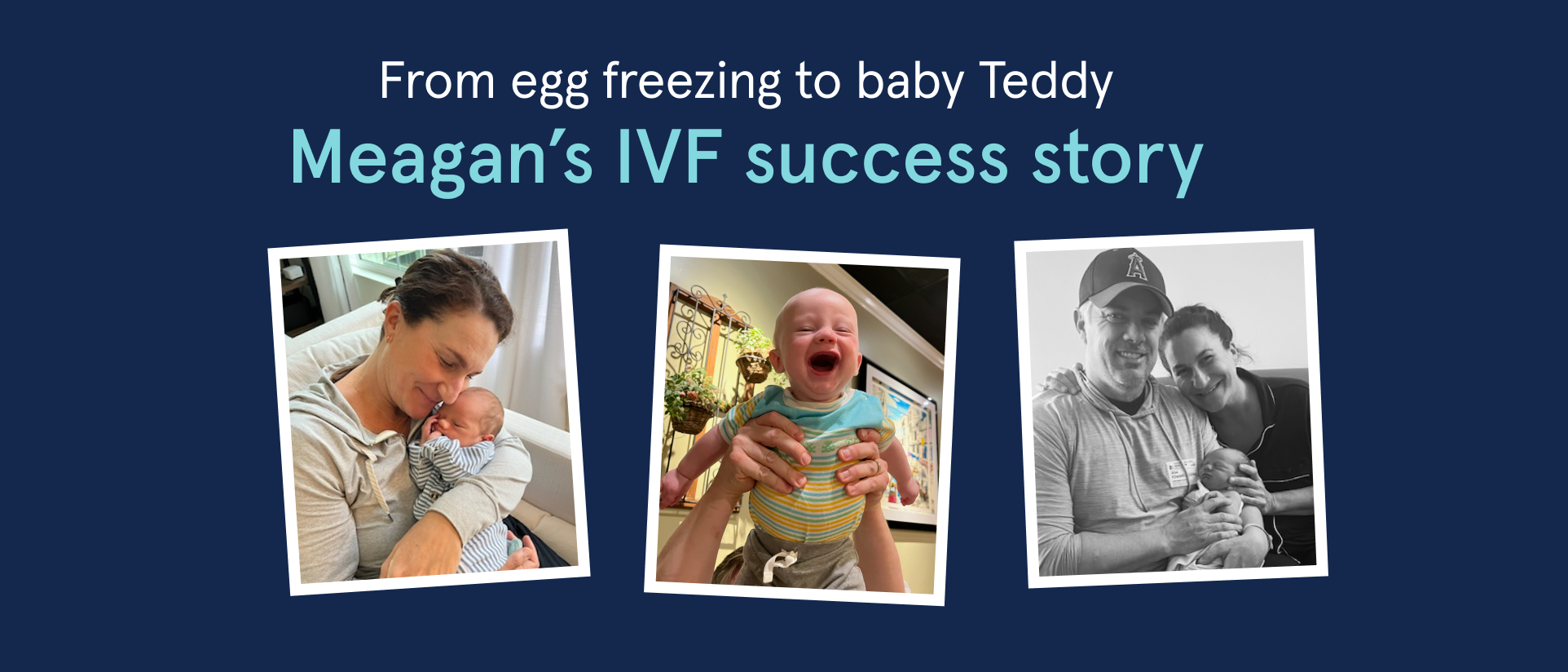
Does birth control cause infertility?
One of the most common questions we hear is: Can birth control damage my future fertility? The good news is that, while it may feel like there’s a risk, the science tells a very different story. At Collab Fertility, we believe in care that is compassionate, reassuring, and grounded in evidence. We understand how important your fertility journey is, and our Bay Area–based team is here to help you navigate it with clarity and confidence.
According to an extensive systematic review, contraceptive use—regardless of the type or how long you’ve been on it—does not negatively impact your ability to conceive once you stop. In other words, using birth control responsibly while you’re not ready to get pregnant does not harm your future fertility.
That said, there are a few important considerations if you’re planning ahead. Keep reading for key information about birth control, AMH levels, and how to transition off contraception when you’re preparing for egg or embryo freezing, or hoping to conceive.
Here at Collab, we focus on understanding your unique history, your goals, your fertility status, and, through The Collab Way, how simple lifestyle changes can improve your chances of conceiving. Using our advanced lab and expert staff, we provide personalized assessments and take the guesswork out of planning.
Does Plan B make you infertile?
Emergency contraception (often called Plan B or its brand equivalents) is designed to prevent a pregnancy in the short term. Evidence and clinical guidance consistently show it does not harm long-term fertility or make you infertile.
If you’ve used emergency contraception and are now ready to conceive, rest assured: using it in the past has not compromised your ability to get pregnant, and our team at Collab is ready to support you when you’re ready.
Can IUDs cause infertility?
This is one of the most common questions we hear at our Walnut Creek fertility clinic. The data are reassuring: a large study of women who had an intrauterine device (IUD) removed for pregnancy planning found that 94.3% conceived after removal.
Another review found pregnancy rates of roughly 70-90% within a year of IUD removal — rates similar to those who discontinued other contraceptive methods.
At Collab Fertility, we will walk you through your specific IUD history, address any concerns, and provide comprehensive on-site fertility testing.
When do I need to remove my IUD?
According to Dr. Thalia Segal, you can keep a Mirena—or any type of IUD—in place during an egg-freezing or embryo-freezing cycle. The IUD does not interfere with ovarian stimulation, egg growth, or egg retrieval.
If you're planning to try for pregnancy, Dr. Segal typically recommends removing the IUD about one month before you begin attempting to conceive naturally or via IVF. This allows your cycle to regulate and ensures the uterine environment is ready for implantation.
What happens to your eggs on birth control?
Hormonal birth control methods (pills, patches, rings, hormonal IUDs) work primarily by suppressing ovulation, thinning the uterine lining, and changing cervical mucus. While you’re on them, your body is effectively paused from the cycle of egg release, but it is not depleting your ovarian reserve. Once you stop the method, your ovulatory cycles resume.
In fact, a prospective study found that women who used oral contraceptives for five years or more actually had a decreased risk of delayed conception compared with shorter-term users.
At Collab Fertility, we help you understand not just the cessation of the method, but also how your ovarian reserve, egg quality, and overall reproductive health are best assessed. Our lab and our reproductive endocrinology team offer individualized and comprehensive same-day fertilty testing for women and men.
Does birth control affect egg quality?
The idea that hormonal contraception permanently affects egg quality is a myth. Hormonal methods modulate ovulation but do not reduce your pool of eggs or damage egg quality in a clinically meaningful way.
However, some women may experience a temporary delay in the return of regular ovulation — this is not the same as diminished egg quality. Our founder and medical director, Dr. Thalia Segal, recommends stopping birth control three months before trying to conceive.
If I’ve been on birth control for years, can I get pregnant easily?
Having used birth control for many years does not mean you’ll struggle to conceive once you stop. The overwhelming evidence indicates that prior use is not a predictor of future infertility.
For instance, one meta-analysis of 14,884 women found 83.1% became pregnant within 12 months of stopping contraceptives.
It’s also important to note that birth control can mask underlying conditions that affect fertility. Because the pill creates an artificial, regulated cycle, it can hide symptoms of:
• PCOS
• early menopause (primary ovarian insufficiency)
• thyroid disorders
• high prolactin levels
For people who have been on the pill long-term, stopping can help reveal whether your natural cycle is regular and whether any of these issues may be present.
Further, long-term pill use can temporarily lower AMH (a marker of ovarian reserve). This is not a permanent change—AMH typically returns to your true baseline after you stop the pill and your hormones rebalance.
At Collab Fertility, we review your full history, underlying risk factors, and family-building goals. We then schedule targeted testing and create a personalized plan to give you the strongest foundation and the best chance of conceiving.
How long does the pill stay in your system?
Most oral contraceptive hormones leave the body within a week or two of discontinuation; fertility and ovulation commonly resume within one to three menstrual cycles.
Some long-acting methods (for example, the Depo-Provera injection) may take longer for ovulation to resume — sometimes up to 10 months.
Chronic pill use will result in falsely low level in AMH tests, which can be reversed by stopping pill for at least three months.
Do I need to stop birth control before freezing eggs or embryos?
Yes—it's best to stop birth control at least three months before starting a fertility treatment cycle. This gives your hormones enough time to regulate naturally and helps ensure an optimal response to medications and the highest possible egg yield.
Is it bad to go on and off birth control?
It’s common to switch methods or pause contraception in preparation for conception. The research shows that changing, pausing, or varying methods does not mean future fertility is harmed. What matters more is your overall reproductive health, your partner’s fertility, and the timing of conception.
Fertility doesn’t start where birth control ends — it starts with informed, individualized care.
At Collab Fertility, we encourage you to think of birth control transitions as part of your broader reproductive timeline—and we’ll support that transition every step of the way. Through thoughtful testing and personalized planning, we help ensure that when you’re ready to conceive, you’re stepping into the process prepared, confident, and well-informed.
If you’re planning a family, you deserve clarity, compassion, and expert support. At Collab Fertility, we believe your fertility story and your timeline matter. Our Bay Area-based team and state-of-the-art lab work together to deliver evidence-based, personalized, and integrative care.
Through The Collab Way, every patient receives tailored guidance on fertility-optimized nutrition, clean-living strategies, and access to supportive care, including acupuncture and therapy from day one. This whole-person approach reflects our commitment to treating not just the science of fertility, but the human experience behind it.
Whether you’ve used birth control for years, recently stopped, or are rethinking your fertility path, we’re here to help you assess, plan, and move forward with confidence. Schedule a consultation today to assess your fertility with same-day, onsite fertility testing.
________________________
Proudly Supporting Local Communities
Collab Fertility is honored to serve families in the East Bay like Danville, Alamo, Orinda, Lafayette, Moraga, Piedmont, and Walnut Creek, as well as many other communities in the Bay Area and beyond, including Oakland, San Ramon, Concord, Pleasant Hill, Santa Rosa, Novato, Napa, Sonoma, and more.
Latest Articles

Men’s reproductive health 101: Dr. James Smith answers common questions about male fertility


